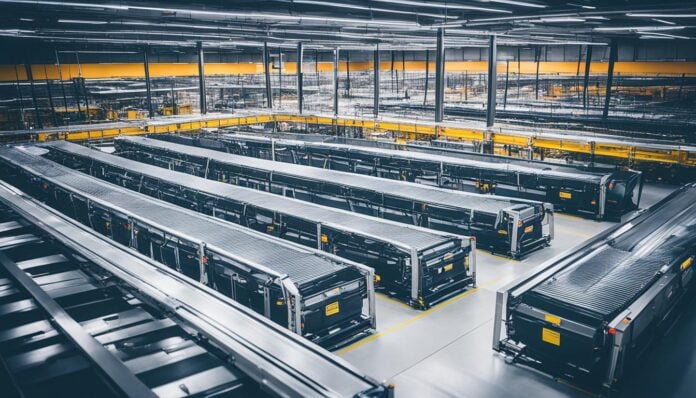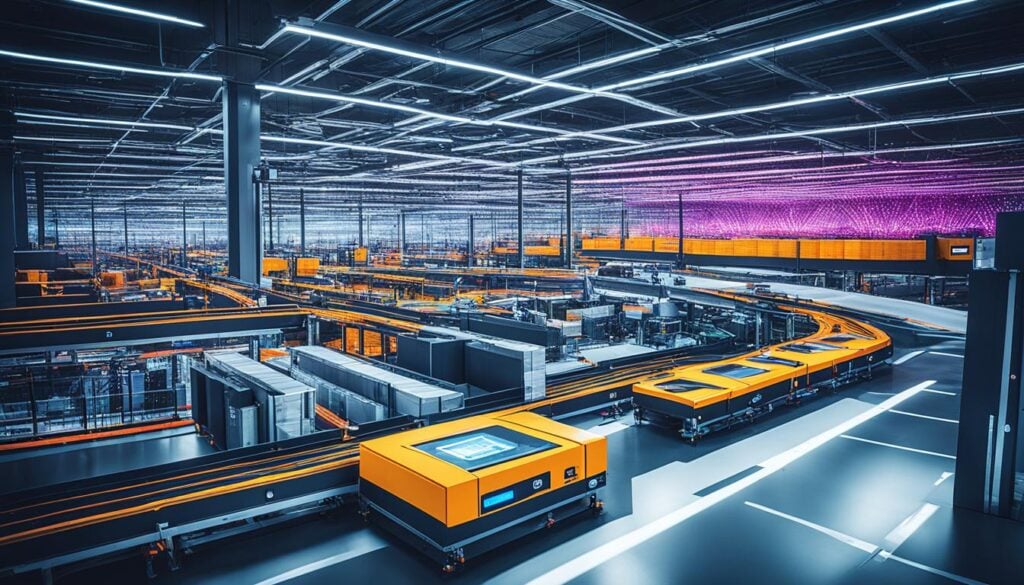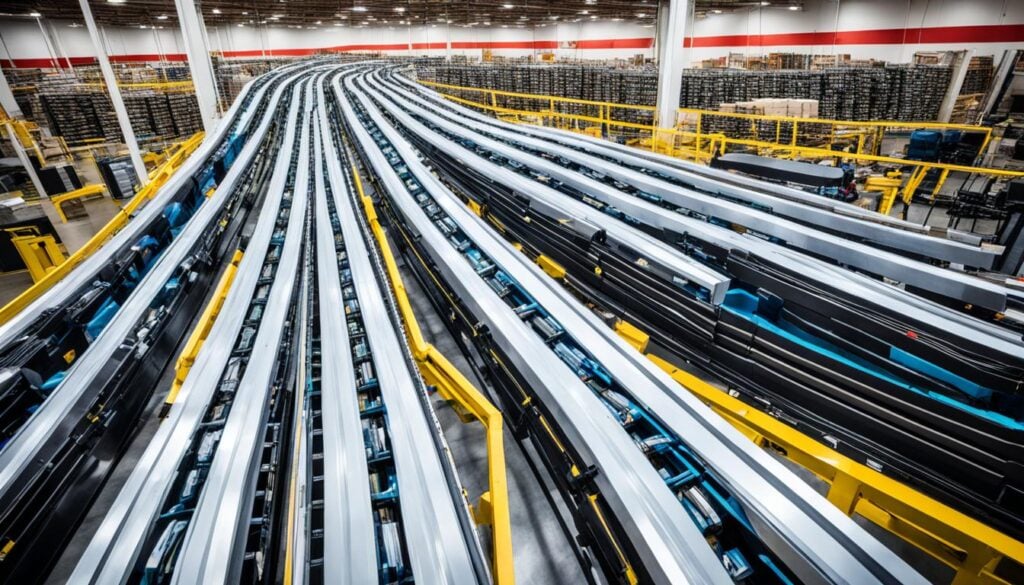In order to ensure efficient warehouse operations and stay competitive in the global market, businesses in Singapore are increasingly turning to automated sorting technology. With the expanding e-commerce sector and rising consumer expectations, optimizing warehouse efficiency has become crucial. By embracing automation, businesses can achieve higher productivity, improved efficiency, and enhance overall operations.
Table of Content:
Table of Content
Understanding Automated Sortation Systems
Automated sortation systems are an essential component of modern warehousing operations. These advanced systems utilize cutting-edge technology to efficiently sort and organize items based on specific criteria such as size, weight, or destination. By automating the sorting process, businesses can achieve higher accuracy, reduce errors, and streamline their overall operations.
Automated sortation systems play a critical role in enhancing warehouse efficiency and maximizing storage capacity. These systems are designed to handle large volumes of items and can significantly increase productivity. They eliminate the need for manual sorting, saving time and reducing labor costs. With automated sortation systems, warehouses can handle a higher volume of orders and meet customer demands more effectively.
By implementing automated sortation systems, businesses can also improve the accuracy of order processing. These systems are equipped with advanced sensors, scanners, and conveyors that ensure precise sorting of items. This eliminates the risk of human error and reduces the likelihood of incorrect shipments. As a result, customer satisfaction is improved, and return rates are reduced.
Furthermore, automated sortation systems contribute to a more optimized use of warehouse space. By sorting items efficiently, these systems maximize storage capacity and minimize wasted space. This allows businesses to store more products in the same area, increasing inventory turnover and overall profitability.
In summary, automated sortation systems are an integral part of modern warehousing operations. They offer businesses a competitive edge by enhancing efficiency, improving accuracy, and maximizing storage capacity. By understanding the basics of these systems, businesses in Singapore can harness the power of automation to optimize their warehouse operations and stay ahead in the dynamic world of logistics and e-commerce.
Key Benefits of Automated Sortation Systems
Automated sortation systems offer several key benefits for warehouse operations. Firstly, these systems significantly improve productivity by automating the sorting process, allowing for faster and more efficient order fulfillment. With the ability to accurately and swiftly sort items, productivity is enhanced as time-consuming manual sorting tasks are eliminated.
Secondly, automated sortation systems enhance efficiency within the warehouse. By reducing errors and minimizing the time spent on manual sorting, operations run smoothly and seamlessly. The streamlined process ensures that items are sorted accurately, reducing the chances of errors and delays.
Additionally, these systems contribute to a safer work environment. The automation of the sorting process reduces the risk of workplace injuries associated with manual labor. By removing the need for physical handling of items, employees are at a lower risk of accidents, promoting a safer and more secure workplace.
Furthermore, automated sortation systems offer the flexibility to adapt to changing business needs. As warehouses face constant shifts and demands, these systems can easily scale up or down to accommodate fluctuations in order volume. The adaptability and flexibility of these systems ensure that businesses can efficiently handle varying workloads and meet customer expectations.
Promoting Efficient and Safe Work Practices
By implementing automated sortation systems and using barcode tracking software, warehouses can achieve higher levels of productivity, efficiency, and safety. These systems offer reliable and accurate sorting capabilities, allowing businesses to fulfill orders in a timely manner.
Furthermore, with reduced manual labor and the elimination of physical handling, the risk of workplace injuries is significantly reduced. The ability to adapt to changing business needs ensures that warehouses can stay agile and responsive in a fast-paced market environment.
Types of Automated Sorting Systems
When it comes to enhancing warehouse efficiency, choosing the right automated sorting system is crucial. With various options available, you can select a system that aligns with your specific needs and requirements. Let’s explore some of the popular types of automated sorting systems:
Pop-up Wheel Sorter
The pop-up wheel sorter is widely used for high-throughput operations. It offers fast and accurate sorting capabilities, ensuring efficient processing of items based on predetermined criteria. This sorting system is ideal for warehouses that require rapid sorting of a large volume of products.
Pusher Sorter
Similar to the pop-up wheel sorter, the pusher sorter provides high-speed sorting capabilities. With precise and reliable pushing mechanisms, it accurately diverts items to their designated locations. This system is commonly used in warehouses with demanding sorting needs.
Tilt-Tray Sorter
For warehouses handling a wide variety of products, the tilt-tray sorter is an excellent choice. It uses trays that can tilt and release items into the designated chutes, ensuring efficient and accurate sorting. This system is highly versatile and adaptable to different product types and sizes.
Crossbelt Sorter
The crossbelt sorter is designed to handle diverse products efficiently. It utilizes belts that move perpendicular to the sorting direction, allowing items to be diverted to the appropriate destinations. This system is suitable for warehouses that require flexibility in sorting various items of different shapes and sizes.
Push Tray Sorter
When it comes to sorting small and lightweight items, the push tray sorter is a reliable choice. It uses individual trays that push items from one conveyor line to another, ensuring accurate sorting even for delicate items.
Sliding Shoe Sorter
Warehouses dealing with fragile or irregularly shaped items can benefit from the sliding shoe sorter. This system uses shoes attached to diverting arms that gently slide items off the conveyor, minimizing the risk of damage. It ensures careful handling and accurate sorting of sensitive products.
Narrow Belt Sorter
As the name suggests, the narrow belt sorter is designed with narrow belts that create separation gaps for sorting items. This system is suitable for handling small-sized items or those with irregular shapes. It provides precise sorting and efficient throughput for specialized product categories.
By understanding the various types of automated sorting systems available, you can make an informed decision to optimize your warehouse operations. The right sorting system will contribute to higher productivity, improved efficiency, and enhanced overall performance.
Applications in Warehousing
Automated sortation systems have revolutionized the way warehouses operate, offering a multitude of applications to enhance efficiency and streamline operations. One key application is in retail store replenishment, where these systems play a vital role in ensuring timely and accurate deliveries to retail stores. By automating the sorting process, businesses can efficiently organize and dispatch products to replenish store shelves, meeting consumer demand effectively.
Another crucial application of automated sortation systems is in direct-to-customer fulfillment. With the increasing popularity of online shopping, businesses need to process and deliver customer orders accurately and quickly. Automated sortation systems enable efficient order sorting and preparation, allowing businesses to meet customer expectations and provide timely deliveries, thus enhancing the overall customer experience.
Just-in-time delivery is an area where automated sortation systems excel, particularly for manufacturers. These systems enable manufacturers to receive components and materials exactly when they are needed, ensuring a smooth production process and minimizing inventory holding costs. By automating the sorting and delivery of materials, automated sortation systems contribute to optimizing the just-in-time delivery strategy.
Additionally, automated sortation systems play a crucial role in B2B fulfillment. Whether it’s delivering bulk orders or separate items to business customers, these systems ensure efficient sorting and preparation, allowing for accurate and timely delivery. By automating the fulfillment process, businesses can enhance their B2B operations, improve customer satisfaction, and build stronger relationships with their business partners.





















































